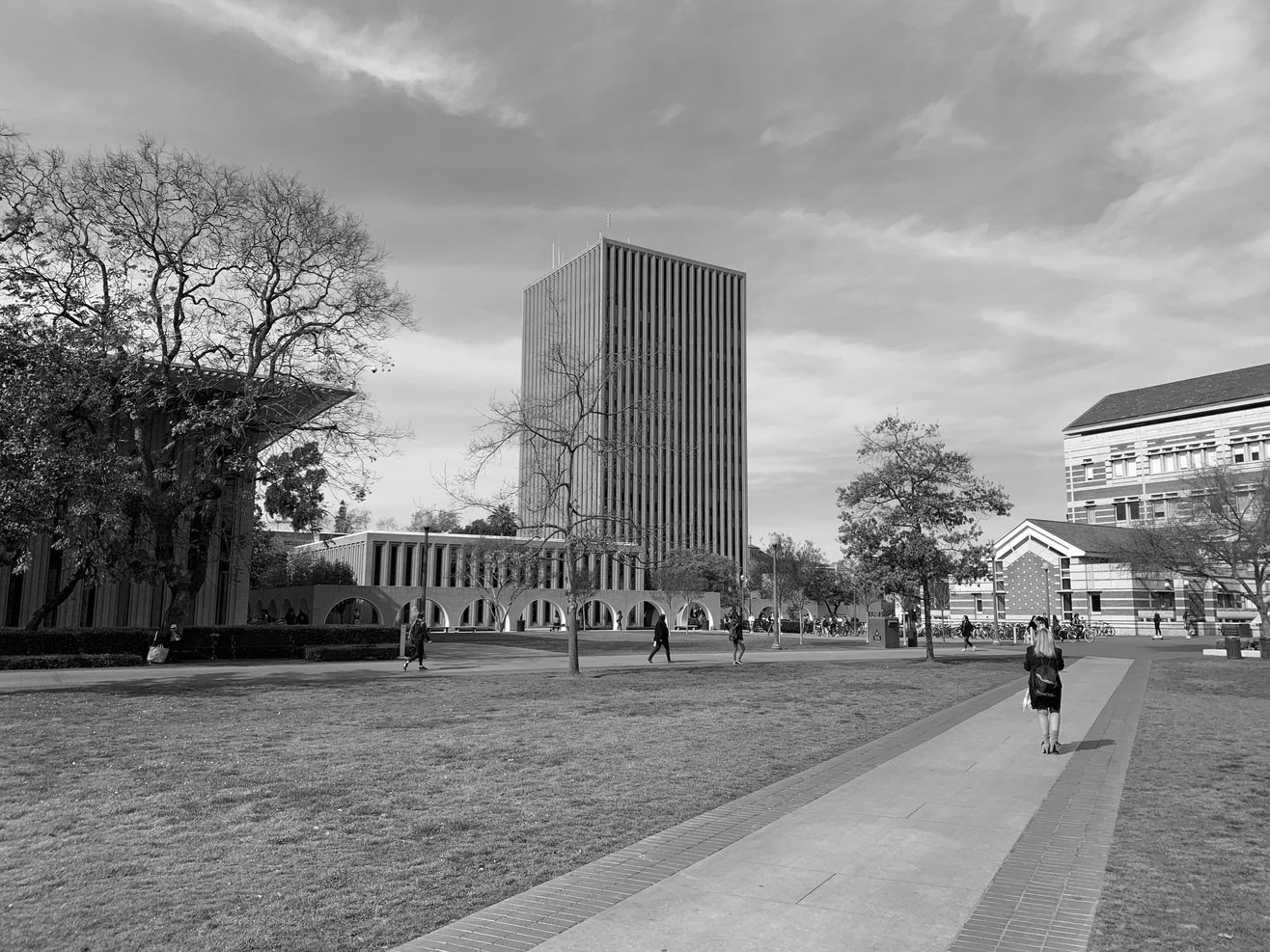
Pullias Center 25th Anniversary Reflections: The Current Team
The current faculty reflects on the Pullias Center in this second of 12 anniversary reflections throughout 2020 marking the center’s 25th anniversary
When the Pullias Center first opened its doors 25 years ago as the Center for Higher Education Policy Analysis, the organization had only 3 people on the team. A quarter century later and the Pullias Center consists of 7 faculty members, half a dozen full-time postdoctoral scholars, 15 research assistants, and is supported by a team of staff and students.
“To me, the Center changes every 4 or 5 years with new research assistants coming on board then eventually graduating,” shares Diane Flores, Administrative Assistant and the longest standing employee currently at the Pullias Center. She joined the team in 2002. “I can call the center my second home, and the people here are my extended family,” she admits.
At the heart of the Pullias Center sits a core of faculty members who drive the research projects and lead the teams under the supervision of the center’s director, Adrianna Kezar. Adrian Huerta, USC Assistant Professor, is the newest faculty member at the center. “I served as an intern mentoring students in the SummerTIME Program at the Pullias Center in 2008 while I was an Ohio State graduate student,” he recalls. “I would share strategies with other students from colder climates about LA weather. Now, over a decade later, I am thrilled to return to the Pullias Center as a tenure-track faculty member studying college access and equity for low-income students and students of color.”
A mentoring atmosphere has been a hallmark of working at the center and has proven an inspiration to others as well. “Pullias has been an intellectual home that has enabled me to receive and provide meaningful mentoring,” states faculty member Tatiana Melguizo, a USC Associate Professor. “Through my relationships with the Pullias-affiliated faculty, students, and staff, I have been able to develop and maintain a vigorous research-practitioner partnership for over ten years.”
Since beginning and through today, the center has upheld a commitment to further the understanding of achieving student success and access, especially for underserved populations. “The commitment of the Pullias Center for opportunity, access, and success of historically marginalized, underserved, and underrepresented students sets it apart from nearly every other higher education policy research center in the nation,” notes John Slaughter, Professor of Education at USC and an esteemed member of the Pullias Center faculty. “It is this commitment, articulated to me by then Director, Bill Tierney, that attracted me to the Center. I am proud of the fact that Adrianna Kezar, who is now the Pullias Center Director, and the faculty, staff, and research associates are continuing that commitment and making a positive difference in the lives of many deserving young students.”
The Pullias Center has built a reputation for being willing to step outside of the box in order to get a better view on any higher education issue. “I knew Adrianna and Bill were two powerhouse scholars using their disciplinary perspectives from anthropology and philosophy to improve how higher education organizations make decisions,” points out current faculty member and USC Associate Professor Julie Posselt, “With a strong commitment to using sociological thinking toward the same ends, I knew this would be a good intellectual home for me and sure enough, it has been in many more ways than I could have originally anticipated.”
However, what is most important is the impact the center has on higher education, which is hard to measure but perhaps best expressed in fond recollection by faculty member Zoe Corwin. “In 2003, the Pullias Center hosted its first summer writing program for students who would be the first in their families to attend college,” the Research Associate Professor remembers. “Bill Tierney and a team of graduate students that included myself planned the curriculum and staffed the event, including staying overnight with the students in one of USC’s dorms. Since then, our I AM mentoring and SummerTIME writing programs have positively impacted several thousand students. I also marvel at how that experience informed the careers and research trajectories of that small but mighty team of grad students, now all faculty and university administrators who have done robust research on college access and success.”
The Pullias Center salutes all of our staff, researchers, affiliates, students, faculty, and partners who have made the last 25 years of higher education research possible and we look forward to the next quarter century of progress.